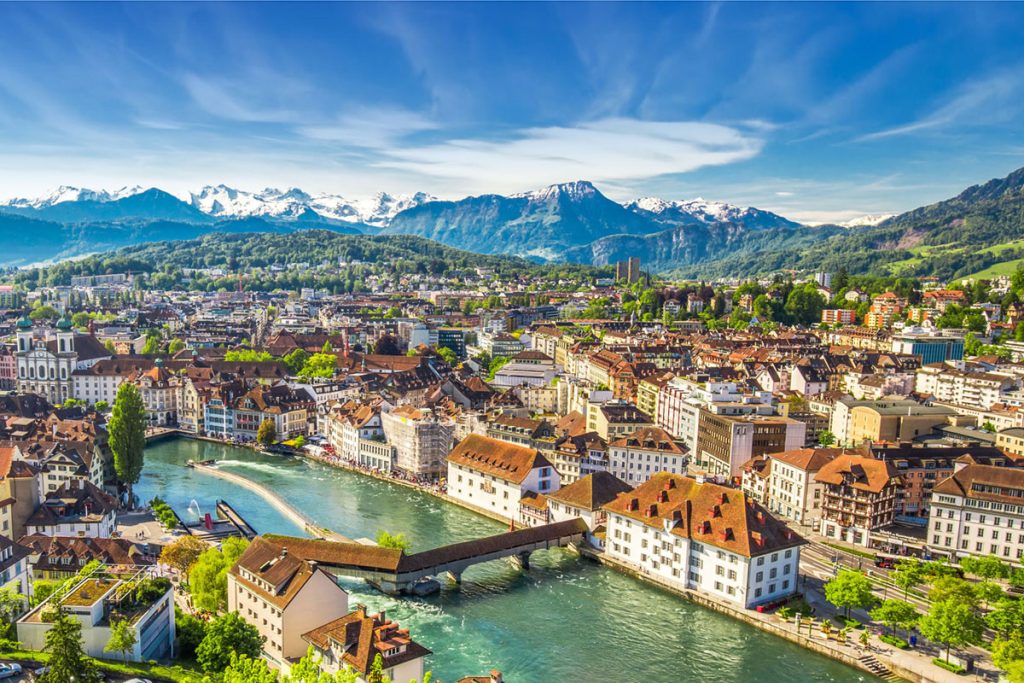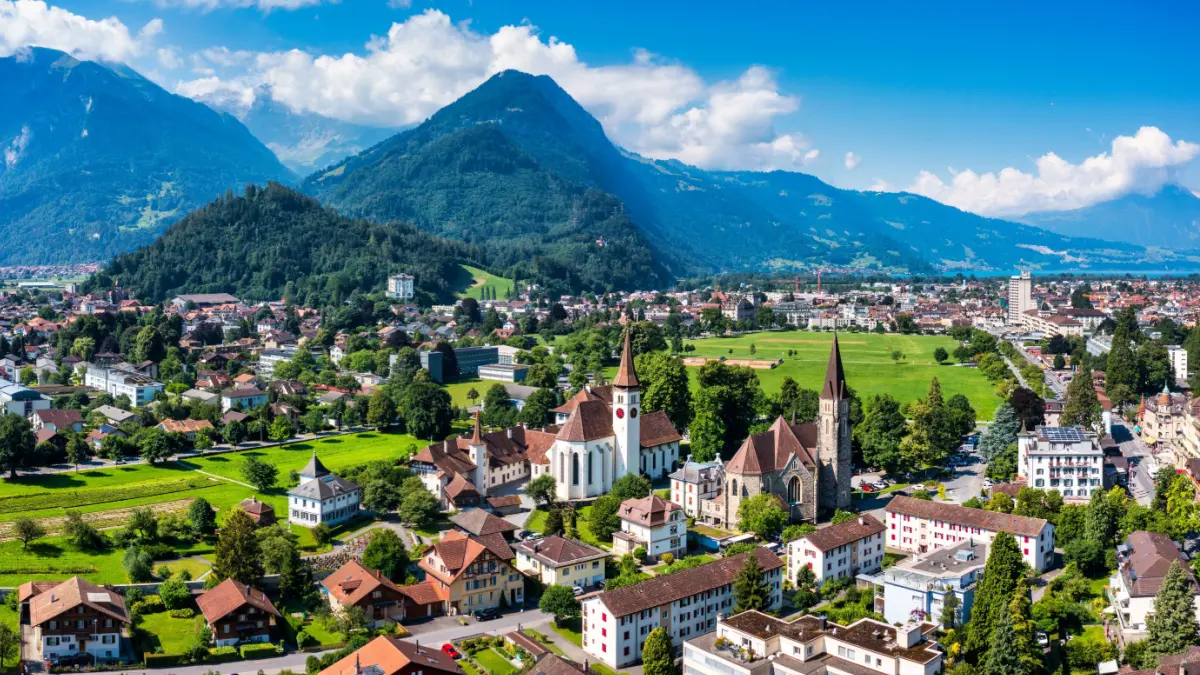Switzerland Residence Permit: A Comprehensive Guide to Application Processes
Living in Switzerland: Residence Permit Requirements

Switzerland, located in the heart of Europe, is a country renowned for its high quality of life, multicultural environment, and stunning landscapes. It is home to four official languages: German, French, Italian, and Romansh. If you plan to stay in Switzerland for an extended period, you will need to obtain a legal residence permit. Regardless of nationality, everyone intending to live in Switzerland must secure this permit.
In this guide, we will explore the different types of residence permits available in Switzerland, the application process, required documents, and important considerations for each step. We will also provide valuable insights for those looking to live, work, or study in the country from various perspectives.
What is a Residence Permit in Switzerland?
A Swiss residence permit, also known as a “residence permit,” is an official document that allows individuals to stay and work in Switzerland for a specific period or indefinitely. This permit is a legal requirement for anyone planning to stay in Switzerland for more than three months, whether they are from an EU/EFTA country or elsewhere.
For citizens of EU and EFTA (European Free Trade Association) countries, obtaining a residence permit is generally simpler compared to citizens of third countries. Since Switzerland is a federal republic consisting of 26 cantons, each canton has its own immigration offices and employment regulations, meaning that the requirements may vary depending on where you apply.
Types of Residence Permits in Switzerland
Switzerland offers several types of residence permits, each suited for a specific purpose and length of stay. Here are the main types:
1. B Residence Permit (Residence Permit)
- Definition: The B residence permit is a renewable annual residence and work permit. It is typically granted if you find employment in Switzerland or apply for family reunification.
- Duration: This permit is initially valid for one year, and it must be renewed annually. EU and EFTA nationals may receive this permit for a duration of up to five years.
2. C Residence Permit (Settlement Permit)
- Definition: The C permit is known as the settlement permit. It grants indefinite residency and is given to those who have lived in Switzerland for a significant period and have integrated into society. Usually, this permit can be obtained after ten years of residing in the country on a B permit.
- Rights: Holders of a C permit enjoy the same rights as Swiss citizens when it comes to employment, education, and mobility within the country.
3. Ci Residence Permit (Residence Permit with Gainful Employment)
- Definition: The Ci permit is designed for family members (spouses and children under 25) of diplomatic or official representatives working in Switzerland.
- Rights: This permit allows the family to work and live in Switzerland as long as the diplomat’s assignment continues. It ends once the assignment concludes.
4. G Residence Permit (Cross-Border Commuter Permit)
- Definition: The G permit is for individuals who reside in neighboring countries (France, Germany, Austria, Italy, or Liechtenstein) but commute to Switzerland for work.
- Conditions: Commuters must return to their home country at least once a week. This permit is limited to a specific canton where the person works.
5. L Residence Permit (Short-Stay Permit)
- Definition: The L permit is a short-term residence and work permit granted to those staying in Switzerland for less than a year.
- Conditions: It is typically issued for employment on a specific project, and applicants must have specialized skills that are in demand.
6. F Residence Permit (Temporarily Admitted Foreigners)
- Definition: This permit is granted to individuals who are temporarily admitted into Switzerland because they cannot return to their home countries. It allows them to reside in Switzerland for a specified period.
- Duration: The F permit is initially granted for one year and may be extended for an additional twelve months if necessary.
7. N Residence Permit (Asylum Seekers)
- Definition: This permit is given to individuals who have applied for asylum and are awaiting a decision.
- Rights: Holders of the N permit are allowed to reside and work in Switzerland while their application is processed.
8. S Residence Permit (Provisional Status for Persons in Need of Protection)
- Definition: The S permit is for individuals who require protection due to war or other emergencies. It grants provisional status.
- Conditions: Employment is subject to approval, and address changes must be reported to the authorities within eight days.
Swiss Residence Permit Application Process
The first step to obtaining a residence permit in Switzerland is to enter the country with the appropriate visa. Once in Switzerland, you must visit the canton immigration office within 14 days of arrival to apply for your residence permit. After submitting the required documents, if approved, your residence card will be sent to your address via post.
Documents Required for Application
The required documents may vary depending on the purpose of your stay and your current situation. Here are some common requirements:
- Application Form: Available from most cantons’ official websites; in some, it can also be filled out online.
- Passport Copy: A copy of your passport’s personal information pages.
If applying for a work-related permit, additional documents may include:
- Approval from Employment Office: Confirmation that the job position was posted on the EURES system.
- Job Posting Copies: Advertisements posted across newspapers, magazines, and online platforms in Switzerland.
- Diplomas and Certificates: Documentation proving your educational qualifications and professional skills.
If applying as a student, you may need:
- Enrollment Certificate: A document proving you have been accepted to a recognized educational institution.
- Proof of Financial Means: Evidence that you can financially support yourself during your stay.
Requirements for Obtaining a Residence Permit in Switzerland
For non-EU/EFTA nationals, obtaining a residence permit in Switzerland can be challenging. Applicants must generally be highly qualified professionals with a good education, proven experience, and evidence that no suitable candidate is available within Switzerland for the position.
In addition, individuals planning to stay long-term must meet professional and social criteria, including language skills, social integration, age, and contributions to Swiss society.
Buying Property in Switzerland and Residence Permits
Buying property in Switzerland, especially for non-EU/EFTA nationals, is subject to strict regulations. Owning property does not automatically grant a residence permit. Non-residents who wish to purchase property must obtain approval from canton authorities, and this is particularly true for investments.
Conclusion and Recommendations
Switzerland offers high living standards and significant economic opportunities, making it an attractive destination for individuals from all over the world. However, the process of obtaining a residence permit can be complex, especially for third-country nationals. To improve your chances, it is essential to be well-prepared, gather all necessary documents, and collaborate closely with canton authorities.

